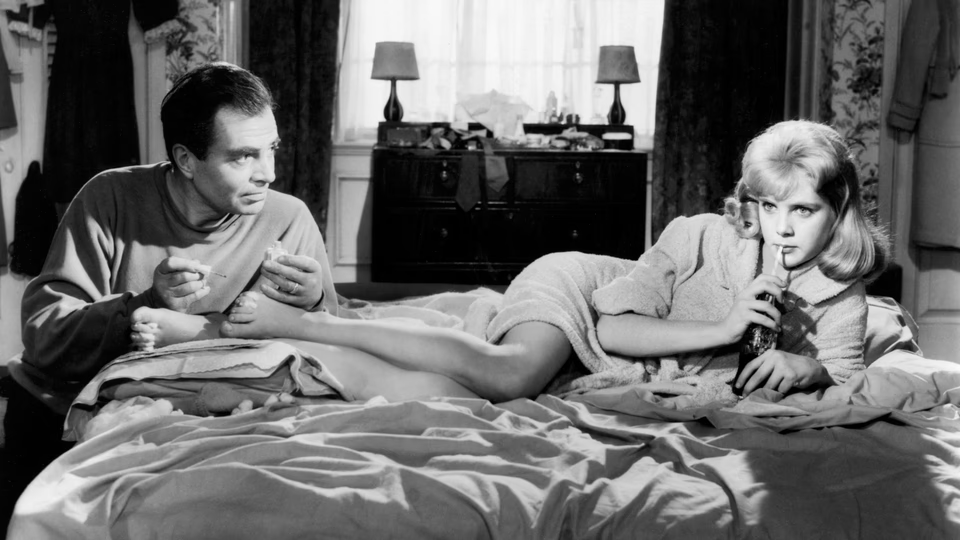Lolita

A college professor (James Mason) marries a woman (Shelly Winters) in order to be close to her nymphet daughter, Lolita (Sue Lyon).
Lolita is a biting black-comedy/drama about obsession and power, that works despite its delicate subject matter.
Much of the credit for this belongs to James Mason, who delivers a spot-on performance as middle-aged professor Humbert Humbert whose infatuation with the titular character forms the basis of the story. In Mason’s hands, Humbert avoids repulsing the audience with his creepy and dirty behavior, and presents a man blinded by his own obsession, one that Sue Lyon’s Lolita is not only aware of, but takes full advantage of as well.
Despite author Vladimir Nabokov receiving the sole screenplay credit for the adaptation from his novel, director Stanley Kubrick used only a fraction of his script, paring the film down to a bizarre love triangle involving Humbert, Lolita, and Clare Quilty, played by Peter Sellers.
And what a performer Sellers is. His smarmy, uninhibited Quilty is the perfect antithesis to Mason’s stuffy, proper Humbert. Kubrick gave Sellers lots of room to improvise, and Sellers makes the most of it, particularly during the memorable balcony scene where Sellers, faintly mimicking director Kubrick, subtly grills Mason over his relationship with Lolita. It’s a fantastic bit, with Sellers giving new meaning to “passive aggressive” and Mason squirming underneath his skin.
That scene is easily the film’s high point but, unfortunately, it starts to run out of steam from there on, and at two and a half hours is a little long. Further, Shelley Winters, in what’s fast becoming a trend, comes across as a bit too over the top, resulting in an emotional disconnect that slightly weakens the film’s first half.
That said, Lolita is still an incredibly sharp piece of filmmaking and is worth a look.